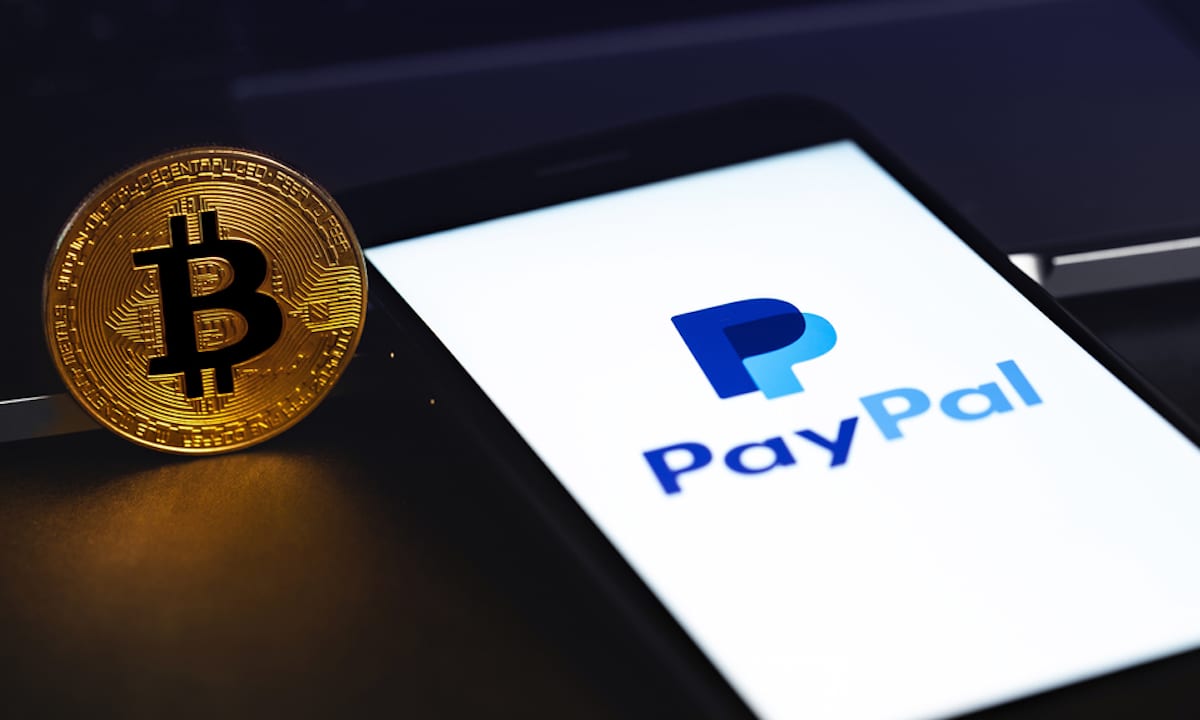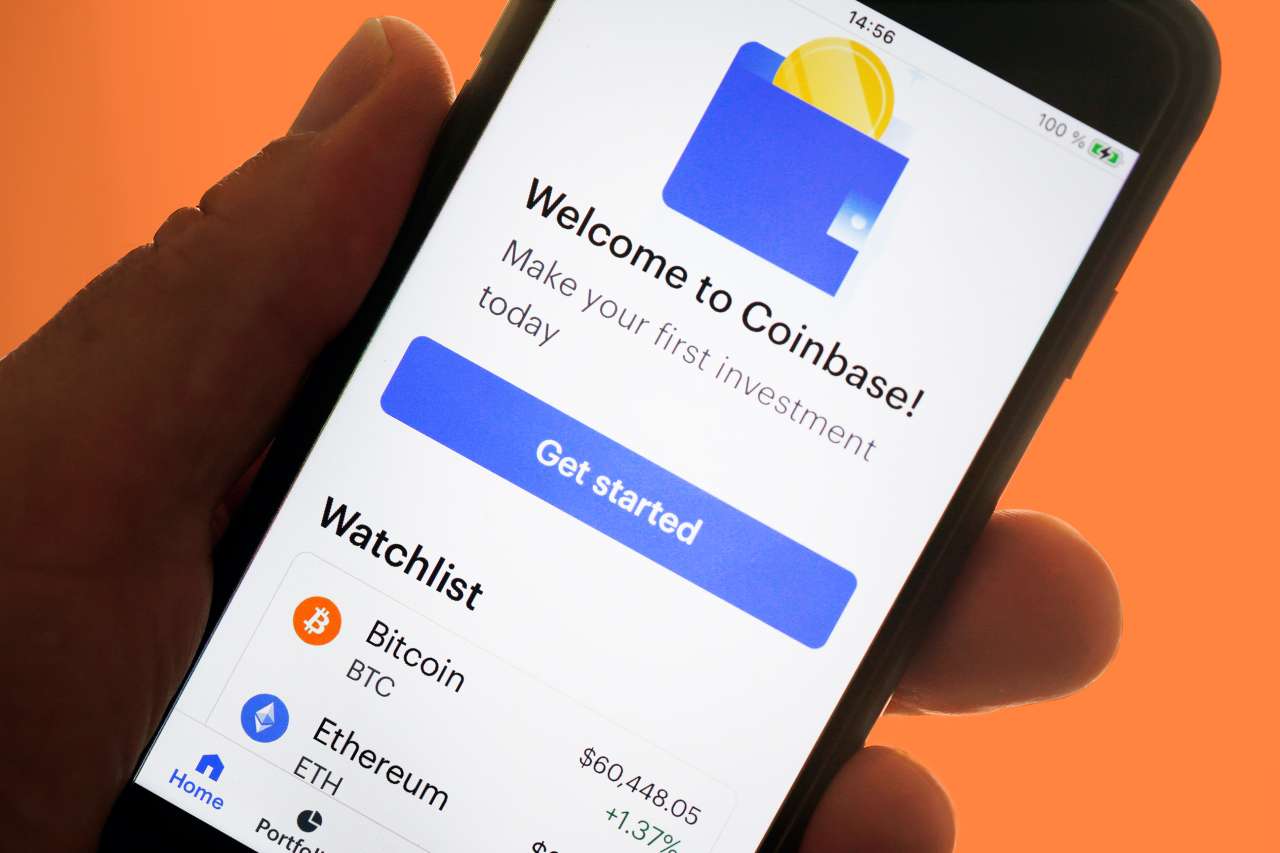Introduction
With the rise of digital currencies, paying with cryptocurrency has become an increasingly popular method of transaction. Cryptocurrency, such as Bitcoin or Ethereum, offers a secure, decentralized, and efficient way to make payments online. Whether you’re shopping online or making a peer-to-peer payment, cryptocurrency provides a convenient and innovative alternative to traditional payment methods.
One of the major benefits of paying with cryptocurrency is the ability to bypass intermediaries such as banks. This allows for faster and cheaper transactions, as well as greater privacy and control over your finances. Additionally, cryptocurrencies offer a high level of security through advanced encryption techniques, protecting your funds from potential fraud or identity theft.
Another advantage of using cryptocurrency for payments is the borderless nature of these digital currencies. Unlike traditional currencies that have geographic limitations, cryptocurrencies can be used globally without the need for currency exchange. This makes it particularly advantageous for international transactions, as it eliminates the hassle and fees associated with converting currencies.
In this article, we will explore the various benefits of paying with cryptocurrency and how to navigate the world of digital currencies. We will delve into the different types of cryptocurrencies accepted for payment, and guide you through the process of setting up a cryptocurrency wallet. Furthermore, we will explain how to find merchants that accept cryptocurrency and provide you with step-by-step instructions on how to make a payment using cryptocurrency. By the end of this article, you will have a comprehensive understanding of how to pay with cryptocurrency and the best practices to ensure a secure and hassle-free transaction.
Benefits of Paying with Cryptocurrency
Paying with cryptocurrency offers several compelling benefits that have contributed to its growing popularity among individuals and businesses alike. Here are some of the key advantages:
- Security: Cryptocurrencies utilize advanced cryptographic techniques to secure transactions, making them highly secure and resistant to fraud or hacking attempts. Each transaction is recorded on a decentralized blockchain, eliminating the risk of counterfeit money.
- Faster Transactions: Traditional banking transactions can often take several days to process, especially for international transfers. In contrast, cryptocurrency transactions are typically completed within minutes, regardless of geographical location.
- Lower Fees: Cryptocurrency transactions generally involve lower fees compared to traditional payment methods such as credit cards or wire transfers. With no involvement of intermediaries, such as banks, transaction costs are significantly reduced.
- Global Accessibility: Cryptocurrencies are not bound by borders, enabling anyone with internet access to engage in transactions. This global accessibility is particularly beneficial for individuals who do not have access to traditional banking services.
- Privacy and Anonymity: While cryptocurrency transactions are not entirely anonymous, they offer a higher degree of privacy compared to traditional payment methods. Users have control over their personal information, reducing the risk of identity theft.
- No Chargebacks: Unlike credit card transactions, cryptocurrency payments are irreversible. Once a transaction is completed, it cannot be reversed, eliminating the risk of chargebacks and potential losses for merchants.
These benefits position cryptocurrency as a practical, efficient, and secure payment method that has revolutionized the way transactions are conducted. As more individuals and businesses embrace digital currencies, these advantages continue to drive the adoption of cryptocurrency in various industries.
Types of Cryptocurrencies Accepted for Payment
The world of cryptocurrency is diverse, with thousands of digital currencies in existence. While Bitcoin remains the most well-known and widely accepted cryptocurrency, several other cryptocurrencies are gaining traction and being accepted for payment. Here are some of the most popular types of cryptocurrencies used for transactions:
- Bitcoin (BTC): Bitcoin is the pioneering cryptocurrency that started it all. It remains the most widely accepted digital currency and is supported by a vast number of merchants globally. Bitcoin transactions are secure, fast, and offer a decentralized payment system.
- Ethereum (ETH): Ethereum is a decentralized platform that allows developers to create and deploy smart contracts. Ether (ETH) is the native cryptocurrency of the Ethereum network and holds significant value. Many online merchants and service providers now accept Ether as a form of payment.
- Ripple (XRP): Ripple is both a digital payment protocol and a cryptocurrency. Its focus is on facilitating fast, low-cost international money transfers. While primarily aimed at financial institutions, an increasing number of online merchants also accept Ripple as a payment method.
- Litecoin (LTC): Created as a “lite” version of Bitcoin, Litecoin offers faster transaction confirmation times and a different hashing algorithm. As a result, it has gained popularity among merchants as a reliable and efficient cryptocurrency for payment processing.
- Bitcoin Cash (BCH): Bitcoin Cash is a fork of Bitcoin that aims to facilitate faster, cheaper transactions. With a larger block size limit than Bitcoin, it allows for greater scalability and faster confirmation times. Many online merchants now support Bitcoin Cash as a payment option.
- Stellar (XLM): Stellar is a blockchain platform designed to facilitate fast and low-cost international money transfers. It aims to connect financial institutions, payment systems, and individuals, making it an attractive option for cross-border payments. Some online merchants have started accepting Stellar for transactions.
It’s important to note that the acceptance of these cryptocurrencies for payment may vary among merchants. While Bitcoin is widely accepted, other cryptocurrencies may have more limited acceptance. It’s always a good idea to check with the merchant directly or look for payment options on their website to determine which cryptocurrencies they accept.
As the world of cryptocurrency continues to evolve, it’s likely that we will see more digital currencies being accepted for payment, providing users with a wider range of options for conducting transactions.
Setting up a Cryptocurrency Wallet
In order to pay with cryptocurrency, you’ll need to set up a digital wallet to securely store your funds. A cryptocurrency wallet serves as a digital equivalent of a traditional wallet, allowing you to send, receive, and store your digital assets. Here are the steps to set up a cryptocurrency wallet:
- Choose a Wallet Type: There are different types of cryptocurrency wallets available, including web-based wallets, desktop wallets, mobile wallets, and hardware wallets. Each type has its own unique features, so choose one that suits your needs and preferences.
- Research Wallet Providers: Once you’ve decided on a wallet type, research reputable wallet providers that offer high security standards and user-friendly interfaces. Read reviews, compare features, and ensure that the wallet is compatible with the specific cryptocurrencies you want to use.
- Download or Access the Wallet: Depending on the wallet type you choose, download the wallet application or access it through a web-based platform. Ensure that you download the wallet from the official source to avoid any potential security risks from counterfeit wallets.
- Create a New Wallet: When setting up your wallet, you’ll usually be prompted to create a new wallet by generating a unique set of encryption keys. Follow the instructions provided by the wallet provider to securely create your wallet.
- Secure Your Wallet: Take precautions to secure your wallet by setting up strong passwords and enabling two-factor authentication if available. Additionally, consider backing up your wallet by securely storing the backup phrase provided by the wallet provider.
- Receive and Send Cryptocurrency: Once your wallet is set up, you’ll be assigned a unique address for each cryptocurrency supported by the wallet. This address can be shared with others to receive funds. To send cryptocurrency, input the recipient’s wallet address and the amount you wish to send.
It’s important to note that cryptocurrency wallets do not physically store your digital assets. Instead, they store the encryption keys needed to access and manage your funds on the blockchain. This means that even if you lose your device or uninstall the wallet application, you can still recover your funds using the backup phrase.
Remember to research and choose a reputable wallet provider, as the security of your wallet is crucial. Regularly update your wallet software and exercise caution when receiving or sending funds to ensure a safe and secure cryptocurrency experience.
Understanding Cryptocurrency Addresses
Cryptocurrency addresses play a crucial role in the world of digital transactions. They are unique identifiers that enable the sending and receiving of cryptocurrency funds. Understanding how cryptocurrency addresses work is essential for securely conducting transactions. Here’s what you need to know:
Structure: A cryptocurrency address is usually a string of alphanumeric characters that varies in length, depending on the type of cryptocurrency. For example, a Bitcoin address typically starts with a “1” or “3,” followed by a series of letters and numbers.
Public and Private Keys: A cryptocurrency address is derived from a pair of cryptographic keys: the public key and the private key. The public key is shared openly and serves as the address, while the private key remains secret and is used to access and control the funds associated with the address.
Generating an Address: Cryptocurrency addresses are generated using sophisticated algorithms that utilize the private key to derive a corresponding public key. The address is then derived from the public key through further calculations. This ensures that only the private key holder can authorize transactions associated with that address.
Importance of Security: It is crucial to keep your private key secure and confidential. Anyone with access to your private key can access and control the associated funds. Wallet providers often use advanced security measures, such as encryption, to protect your private key. Additionally, using hardware wallets or wallet applications with strong security features can provide an extra layer of protection.
Address Reusability: In most cases, cryptocurrency addresses can be used multiple times for receiving funds. This means that you can share your address with others, and they can send funds to that specific address. However, it’s generally recommended to use a new address for each transaction to maintain a higher level of privacy and security.
QR Codes: To facilitate quick and accurate transactions, cryptocurrency addresses often have corresponding QR codes. By scanning the QR code using a wallet application, users can easily send funds to the correct address without the need to manually enter the address string.
Understanding cryptocurrency addresses is essential to ensure that your transactions are successful and secure. By safeguarding your private key and following best practices, such as using unique addresses for each transaction, you can maintain control over your cryptocurrency funds and protect yourself from potential security risks.
How to Find Merchants that Accept Cryptocurrency
As the adoption of cryptocurrency continues to grow, more and more merchants are accepting digital currencies as a form of payment. Here are several methods to find merchants that accept cryptocurrency:
Online Directories: Various online directories specialize in listing merchants that accept cryptocurrency. These directories provide an easy way to locate businesses across different industries that embrace digital currencies. Some popular directories include Cryptwerk, Coinmap, and Spendabit.
Cryptocurrency Payment Processors: Payment processors enable merchants to accept cryptocurrency payments seamlessly. Some notable cryptocurrency payment processors, such as BitPay and CoinGate, offer directories on their websites that showcase businesses utilizing their payment services. These directories provide a convenient way to explore merchants that accept cryptocurrencies.
Crypto-Friendly Communities: Engaging with crypto-friendly communities can be an excellent way to discover merchants that accept cryptocurrency. Online forums, social media groups, and dedicated cryptocurrency communities often share lists of businesses that embrace digital currencies. Engaging with these communities can not only help you find merchants, but also provide insights into the overall cryptocurrency ecosystem.
Business Listings: Some businesses proudly display their acceptance of cryptocurrencies on their websites or in-store. Look for logos or signs indicating cryptocurrency acceptance, such as the Bitcoin logo or specific logos of supported cryptocurrencies. Additionally, check for dedicated “payment options” or “accepted cryptocurrencies” sections on their websites.
Events and Conferences: Attending cryptocurrency-related events and conferences can be a great way to meet merchants and businesses that accept cryptocurrency. These events often have exhibitor booths or dedicated networking sessions where you can connect with merchants directly and learn about their cryptocurrency payment options.
Local Businesses: Don’t overlook local businesses in your area. Many small businesses and independent merchants are starting to embrace cryptocurrency payments. Visit local stores, cafes, restaurants, or even service providers, and inquire if they accept cryptocurrency as a payment option. Sometimes, smaller businesses may not actively advertise their acceptance of digital currencies.
Remember to thoroughly verify the reputation, legitimacy, and payment processes of any merchant you choose to transact with. It’s also important to consider the availability and usability of the specific cryptocurrencies you intend to use, as not all merchants accept every type of digital currency.
By utilizing online directories, engaging with crypto communities, exploring payment processors, and actively reaching out to local businesses, you can discover a wide array of merchants that accept cryptocurrency and enjoy the convenience of transacting with digital currencies.
Steps to Paying with Cryptocurrency
Once you have a cryptocurrency wallet and have found a merchant that accepts digital currencies, you’re ready to make a payment. Here are the steps to pay with cryptocurrency:
- Select Items or Services: Choose the items or services you wish to purchase from the merchant’s website or physical store, just like you would with any other payment method.
- Choose Cryptocurrency Payment Option: During the checkout process, look for the payment options or cryptocurrency logos that indicate cryptocurrency acceptance. Select the appropriate cryptocurrency you want to use for the transaction.
- Generate Payment Address: The merchant will provide you with a unique payment address in the form of a QR code or a string of characters. This address represents the destination for your payment.
- Open Your Cryptocurrency Wallet: Open your wallet application or access your wallet through your preferred method. Ensure that you have enough funds in your wallet to cover the purchase.
- Scan the QR Code or Enter the Payment Address: If the merchant provides a QR code, use your wallet application to scan it. Alternatively, you can copy and paste the payment address directly from the merchant’s website or application into your wallet.
- Enter the Payment Amount: Specify the amount you wish to send to the merchant in the cryptocurrency of your choice. Take note of any applicable conversion rates or fees.
- Confirm the Transaction: Verify the transaction details, such as the payment address, payment amount, and transaction fee. Double-check the information to ensure accuracy.
- Authorize and Send Payment: Once you have reviewed and confirmed the transaction details, authorize the payment from your wallet. Depending on the wallet, you may need to enter your wallet password or provide additional authentication, such as a fingerprint or PIN.
- Wait for Confirmation: After the payment is sent, wait for the transaction to be confirmed on the blockchain. The time for confirmation may vary depending on the cryptocurrency and network congestion.
- Receipt or Order Confirmation: Once the transaction is confirmed, the merchant will typically provide a receipt or order confirmation to acknowledge the successful payment. Keep this information for your records, as it serves as proof of the transaction.
It’s important to note that the specific steps may vary depending on the merchant and the cryptocurrency you are using. Some wallets and payment processors may have additional features or require specific authentication methods.
By following these steps and staying vigilant about transaction details, you can successfully make payments with cryptocurrency and enjoy the convenience and security offered by digital currencies.
Security Considerations when Paying with Cryptocurrency
When paying with cryptocurrency, it is crucial to prioritize security to protect your funds and personal information. Here are some key security considerations to keep in mind:
Choose Secure Wallets: Select a reputable and secure cryptocurrency wallet to store your funds. Look for wallets with advanced security features, such as encryption, two-factor authentication, and biometric login options. Avoid using wallets from unknown sources or that have a history of security vulnerabilities.
Secure Your Private Keys: Safeguard your private keys, as they provide access to your funds. Keep them private and avoid sharing them with anyone. Consider storing your private keys offline in hardware wallets or using encrypted storage methods, such as secure digital vaults or password managers.
Update Wallets and Software: Regularly update your cryptocurrency wallet software to ensure you have the latest security patches and features. Outdated wallets may be vulnerable to hacking attempts or security breaches. Stay informed about any updates or security advisories from the wallet provider.
Beware of Phishing Attempts: Be cautious of phishing attempts that aim to trick you into revealing your wallet credentials or personal information. Double-check the URLs of wallet websites and payment pages to ensure you are on the legitimate site. Avoid clicking on suspicious links or downloading attachments from unknown sources.
Double-Check Payment Addresses: Before sending a payment, verify the accuracy of the recipient’s payment address. Cryptocurrency transactions are irreversible, and sending funds to the wrong address may result in permanent loss. Double-check the address and use secure methods, such as scanning the QR code or copying and pasting the address, to minimize errors.
Use Secure Networks: When making cryptocurrency payments, ensure that you are connected to a secure and trusted network. Avoid using public Wi-Fi networks, as they may be vulnerable to hackers who can intercept your data. Consider using a virtual private network (VPN) for an added layer of security.
Monitor Transaction Activity: Regularly review your transaction history and wallet activity. Keep an eye out for any unauthorized transactions or suspicious activity. If you detect any anomalies, immediately report them to your wallet provider and take steps to secure your funds.
Backup Your Wallet: Regularly back up your wallet to ensure you can recover your funds in case of device loss or wallet corruption. Follow the backup instructions provided by your wallet provider and securely store the backup in an offline location or encrypted storage.
Educate Yourself: Stay informed about the latest security practices and news related to cryptocurrency. Educate yourself on common security threats and scams to better protect yourself from potential risks. Engaging with the cryptocurrency community and seeking advice from trusted sources can also enhance your security knowledge.
By implementing these security considerations, you can mitigate potential risks and safeguard your cryptocurrency transactions. Always prioritize security when dealing with digital currencies to ensure a safe and protected experience.
Best Practices for Paying with Cryptocurrency
Paying with cryptocurrency is not only convenient but also requires adherence to best practices to ensure a smooth and secure transaction. Here are some essential best practices to follow when making payments with cryptocurrency:
Evaluate Merchant Reputation: Before making a payment, research the reputation and credibility of the merchant. Look for customer reviews, ratings, and feedback to ensure they have a history of reliable and trustworthy transactions. Be cautious when dealing with unfamiliar or unverified merchants.
Keep Software Updated: Regularly update your cryptocurrency wallet software and any associated applications or plugins to the latest available versions. Updates often include important security patches that protect against vulnerabilities and potential exploits.
Verify SSL Certificates: When making payments online, ensure the merchant’s website or payment page is secured with a valid SSL certificate. This is indicated by a padlock icon and “https” in the website address. This encryption helps protect your payment information from being intercepted by malicious actors.
Double-Check Transaction Details: Before confirming a transaction, carefully review all the details, including the payment amount, recipient address, and any associated fees. Verify the accuracy of the information to prevent sending funds to the wrong address or with incorrect amounts.
Use Hardware Wallets for Large Transactions: For significant or large transactions, consider using a hardware wallet. Hardware wallets provide an additional layer of security by storing your private keys offline and protecting them from potential online threats, such as malware or hacking attempts.
Diversify Wallets: Consider using multiple wallets for different purposes. For example, you can use one wallet for frequent small transactions and another for long-term storage of larger amounts. This diversification helps mitigate risks associated with a single wallet compromise.
Implement Two-Factor Authentication: Enable two-factor authentication (2FA) for your cryptocurrency wallets whenever possible. 2FA adds an extra layer of security by requiring a second form of verification, such as a unique code generated on your smartphone, in addition to your password.
Backup Wallets Regularly: Regularly create backups of your cryptocurrency wallets and securely store them offline. This ensures that even if you lose access to your original wallet or device, you can restore your funds using the backup and associated private keys.
Keep Private Keys Offline: Store your private keys offline rather than saving them on your computer or in the cloud. Offline storage methods, like hardware wallets or encrypted storage devices, are less susceptible to online threats, such as hacking or malware attacks.
Stay Informed: Stay up to date with the latest news, trends, and security practices related to cryptocurrency payments. Engage with the cryptocurrency community, follow trusted sources, and educate yourself about potential risks and vulnerabilities in order to make informed decisions.
By following these best practices, you can significantly enhance the security and integrity of your cryptocurrency transactions. Prioritizing security, staying vigilant, and being proactive will help ensure a safe and rewarding experience when paying with cryptocurrency.
Conclusion
Paying with cryptocurrency offers numerous benefits, such as increased security, faster transactions, and global accessibility. By understanding the essentials of paying with cryptocurrency, you can navigate the world of digital currencies with confidence.
In this article, we covered the benefits of paying with cryptocurrency, including the security, speed, and cost advantages it offers over traditional payment methods. We explored different types of cryptocurrencies accepted for payment, highlighting popular options like Bitcoin, Ethereum, and Ripple.
Setting up a cryptocurrency wallet is a crucial step, and we provided insights into choosing a secure wallet provider and the steps involved in creating a wallet. Understanding cryptocurrency addresses is essential to ensure accurate and secure transactions, and we discussed the structure and importance of public and private keys.
We also explored various methods to find merchants that accept cryptocurrency, such as online directories, payment processors, and engaging with crypto-friendly communities. Following that, we outlined the steps involved in paying with cryptocurrency, including selecting items or services, generating a payment address, and confirming the transaction.
Security considerations are vital when dealing with digital currencies, so we emphasized the importance of choosing secure wallets, protecting private keys, and being cautious of phishing attempts. Additionally, we provided best practices for paying with cryptocurrency, including keeping software updated, double-checking transaction details, and using hardware wallets for large transactions.
By following these guidelines, you can make payments with cryptocurrency securely and enjoy the benefits provided by this innovative form of digital currency. Remember to stay informed about the evolving landscape of cryptocurrency, as security practices and merchant acceptance may change over time.
As cryptocurrency continues to gain wider acceptance, paying with digital currencies is becoming increasingly accessible and straightforward. Embrace the convenience and security of cryptocurrency payments, and explore the ever-expanding world of digital transactions.

























